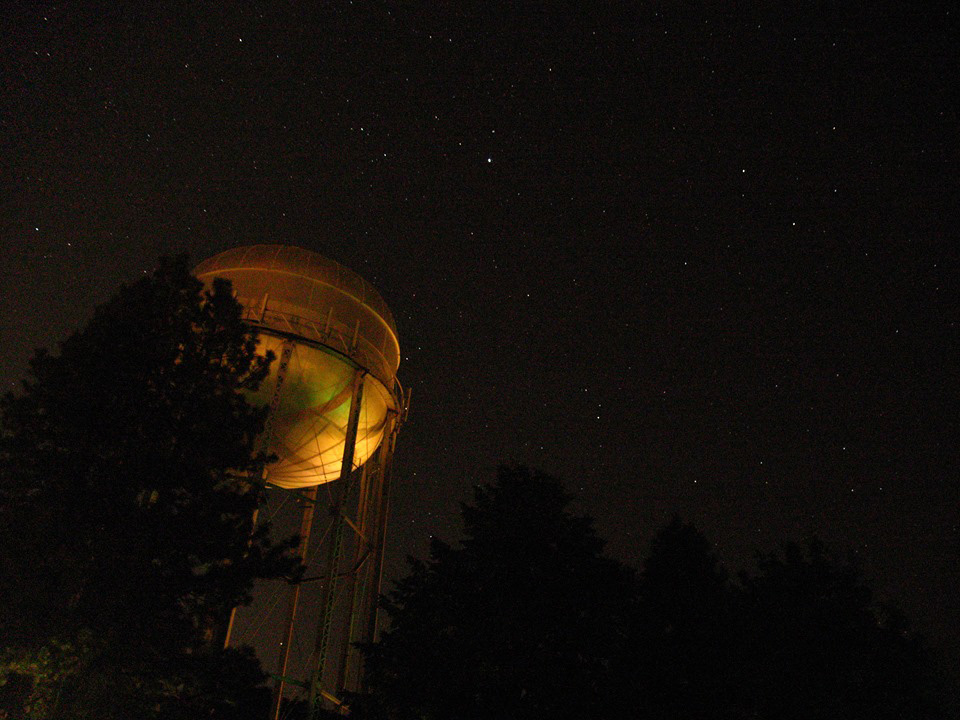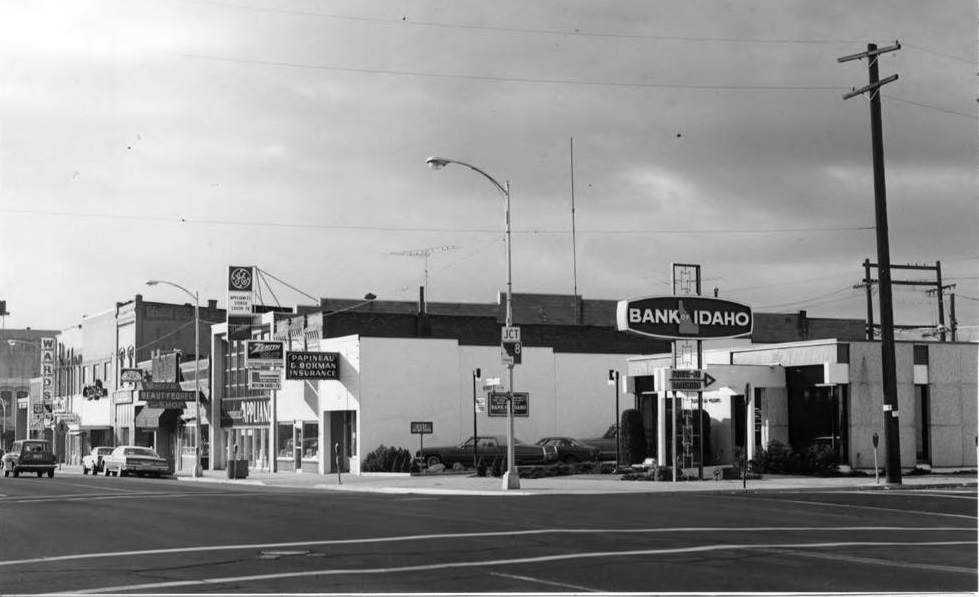
Happy Mess by Ian Paul Messersmith
directed by Sarah Campbell
dramaturgy by Ariana Burns
packet prepared Summer 2020
(Moscow Idaho’s Rotary Park water tower photo by Elaina Pierson)
Happy Mess is in development at the University of Idaho Theatre Arts Department through the Fall 2020 semester.
TOPICS
Happy Mess takes place in the town of Bridge Water which swiftly grew from 15 families to a municipality in a little over three generations. This unique history sets it apart from other communities in its imagined valley. It serves as the ground the characters root in as they face the challenges that life brings.

Robert Wuthnow studied small town communities and people’s interaction within them. He found the connections they made helped them focus on the future.
“[C]ultural heritage connects us to our histories, our collective memories, it anchors our sense of being and can provide a source of insight to help us to face the future.”
Robert Wuthnow
One of the themes of Happy Mess is living with values from the past in the present. The heritage of Bridge Water brings some of the aforementioned values the characters cherish into their lives.
In larger cities, people tend to socialize who those who are like them. One of Wuthnow’s interviewees remarked that in the metropolis:
“…birds of a feather … flock together. In a rural community, you can’t do that….You can’t retreat into a world of your own making….You have to deal with everybody.”
Hanging out with people like yourself is not always an option in small towns. Limited venues will cause more interaction with the populace than a person might ordinarily make left to making their own choices. People who don’t know each other by name come to recognize each other.
One of the interviewees in Knox and Mayer’s Social Construction of Space—Small Town Sustainability felt the interactions leveled social classes and made everyone feel and interact like neighbors (Knox). Wuthnow argued that these encounters in shared spaces gave people opportunities to act in the interest of their collective well-being. “This is one meaning of community” (Wuthnow).
In the play, Ms. Harvey, a teacher in Bridge Water, talks to her students about people who made an impact on their town.
Ms Harvey: … Mr. Johnson formed the Gardening Society here in Bridge Water. He helped open the McGregor family grocery store over 40 years ago. And still sells flowers out of their business to this day. The park just across the street was designed and planted by his hands alone. By doing these simple tasks he has brought jobs, money, hope, and joy to many lives….Now those flowers didn’t save 200 hundred people from a train crash or write the Declaration of Independence. But they did change the very fabric of our community. The way we see one another. How we celebrate the good times and even the bad. Those flowers. His life’s work. It truly is a major contribution to our lives.
Ian Paul Messersmith, “Happy Mess”
These small communities shape and influence how their residents see the world. Another example is seen in a video from the Latah County Historical Society. Guest storyteller Jamie Hill talks about her hometown of Weiser, ID and one of its prominent citizens Frank Mortimer.
A sense of community, especially in small towns is gained from routine encounters and shared experiences. Knox and Mayer found that for this to occur there needed to be plenty of opportunities for community members to meet and talk.
“This requires plenty of opportunities for casual meetings and gossip; friendly settings in which to eat, drink, or linger; street markets; and a sense of historical and cultural continuity.”
Paul Knox and Heike Mayer
Knox, Paul, and Heike Mayer. “Social Construction Of Space—Small Town Sustainability.” Small Town Sustainability: Economic, Social, and Environmental Innovation, Walter de Gruyter. ProQuest Ebook Central. 2009.
Wuthnow, Robert. Small-Town America: Finding Community, Shaping the Future. Princeton University Press, 2013. ProQuest Ebook Central.